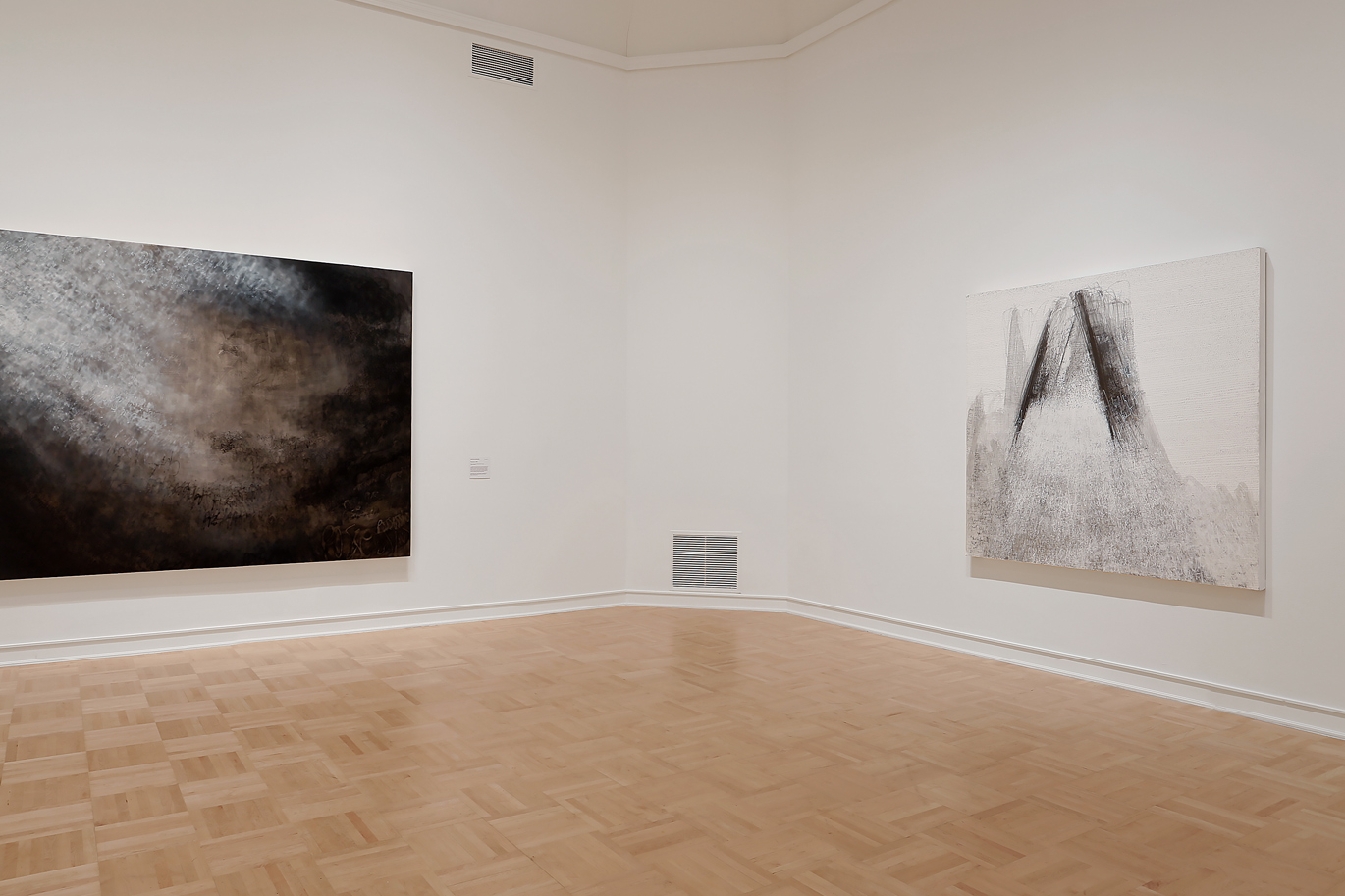- Spring 2020
Syllabus Description:
Welcome to ART400: Interdisciplinary Visual Arts Senior Project SPRING 2020
MW 11:30-2:20 Online in Canvas Zoom
Instructor: Timea Tihanyi
Email: timea@uw.edu
Office hours: MW 10:30-11:30am on Zoom, please email for appointment
Quick links to
Schedule / Students' responsibility during remote learning
About using Zoom / How to Set up and Use CAnvas Collaborations /Choosing a website
Course Description
Art400 focuses on the development of senior–level artwork in any format/media and content of your choice.
During the course of the quarter you will be able to identify, research, develop, and present a senior project. In addition, we will focus this quarter on setting up a visual portfolio oriented towards your post-educational goals related to arts/design fields.
Students' responsibilities: Throughout the quarter, as a way of developing your interdisciplinary senior project to its fullest potential both technically and conceptually, you are responsible for
- consistently moving your project forward by creating and presenting iterations of the work,
- researching, exploring and testing possible materials and presentation formats,
- following up by researching suggested artists/artwork examples, topics and concepts, and making improvements as suggested during consultations,
- and dedicating a regular focused amount of time weekly in your designated studio space.
This course is a laboratory, designed to give you practice with being a professional in the field of the visual arts. Weekly assignments are there to strengthen skills needed by any creative practitioner: research, observation, experimentation, testing approaches, mastering an approach, giving and receiving constructive critique, establishing solid planning and time-management skills, finding balance in fluid situations.
We will start out the quarter with 3 short exercises that will get your creative juices flowing. Withe these, we also explore new options of working without the School's studio facilities. During the course of 10 weeks, in addition to developing an in-depth senior project of your determination, you will also learn to formulate a strong and compelling artist's written statement and to document visual work effectively. By the end of the quarter, you will learn how to build these elements together in a compelling and effective visual portfolio.
With the help of the skills acquired in this class, you will be prepared for professional life beyond school in any creative discipline.
Online Format
Zoom
We will be using Zoom for all kinds of class and group interactions and individual discussions/consultations with the instructor. Also see About using Zoom and Students' responsibility during remote learning.
In your Course Canvas Schedule you'll see three types of upcoming scheduled Zoom meetings. These are:
- ART400 CLASS: MW 11:30-2:20 This meeting is REQUIRED. This is our group time to check in with each other and plan ahead, discuss current issues, conduct peer-group reviews, build community, and learn new content. Meetings will start promptly at 11:30 but we will unlikely to use the entire class time. If there are lectures given by the instructor, these will be recorded and available later in Zoom Recordings. Regular class discussions will not be recorded to protect students privacy.
-
ART400 Individual Consultations: MW 1130-2:20 This meeting is REQUIRED during your scheduled meeting time. You may decide to record these consultations for your own reference. There are 3 such individual consultations scheduled throughout the quarter:
- First round: week 3
- Second round: weeks 5-6
- Third round: week 8
- You must have a significant development to present during these individual consultations. Please have the project be near you to demonstrate (screen sharing of showing the actual object, as well as upload appropriate documentation: images, notes, photos, links to other media to the appropriate Canvas Assignment ahead of time.
- ART400 Office Hours: MW 10:30-11:30am. These are OPTIONAL opportunities to meet with the instructor one on one. Please email me timea@uw.edu for appointment and bring your questions.
Note on Zoom:
Students can see all scheduled class sessions and office hours in Canvas. At the current time, you cannot schedule meetings (e.g., study groups) with class members with the Zoom app in Canvas. To do that, you can access Zoom outside of Canvas by logging into the Zoom web portal at washington.zoom.us.
Canvas Assignments
We will only use Canvas Assignments to upload work (and get points for the work completed) Canvas Assignments will accept all types of files and links. Post always platform independent generic output formats, such as a JPG, PDF. If you need to post a work-in-progress from your specialized software, please post a series of screen captures (PNG). Videos and audio must be uploaded to your Youtube or Vimeo account first. Post URL to the video in Canvas. Information about how to upload is available here: Audio Postcard
To share your work in progress with other students in class (e.g. your peer review group):
Post images to the Discussions section of Canvas. I encourage you to interact with one another, ask questions, respond to discussion prompts, and use this tool to talk about the ideas we are working through collectively in the class.
Grading
Final grade will be determined by the following:
Completed senior project 10%
Completed senior portfolio 10%
Participation and Contribution 10% (with an emphasis on advancing your own as well as others' learning in class. An active engagement with all aspects of the course: in class activities, including critiques, class discussions and peer group work)
Preparedness and Development 70% (having assignment deliverables fulfilled , ability to present new developments at every meeting, meeting work-in-progress check-points) -- 70%
Important:
-
Missed assignments and critiques will result in no credit for that assignment.
-
Absences prevent participation and thus will result in lost participation credits for the day, negatively affecting the final grade.
-
If sudden illness, emergency or random act of nature should prevent you from attending class, you are responsible for checking in with me timea@uw.edu and following up by checking recorded sessions, current and new assignments and upcoming schedule. Missed work must be completed ON or AHEAD OF TIME, unless plans for extension were developed in discussion with the instructor.
- Extensions and special accommodations are only considered in advance discussion with the instructor. Please notify me if you have special circumstances, such as need special accommodations due to temporary circumstances or come down with an illness. With you being on top of things, we can make a plan ahead of time. You must stick to the plan as outlined during our discussion.
- If you have any questions / concerns about the class or your performance, please don't hesitate to schedule an appointment to discuss those with me.
BEST PRACTICES
-
Keep a sketchbook and continue to collect ideas, or collect all project related materials in a folder on your computer.
-
Check Canvas regularly, at least twice a week and the day before class, for updates. Pay attention to your UW email, Canvas email, Canvas Announcements and Schedule updates.
-
During our class meetings and consultations, keep distractions (all other tasks and project, electronics, screens, music, roommates and pets) at the minimum. Class begins at the appointed time. Log in ahead of time and plan to be engaged for the entire duration of our interaction. I will take a roll call every time and will ask for feedback regularly. Spotty attendance will result in the loss of participation points.
- Participate in Zoom! Add relevant content to the topical discussions and group activities. Actively move the group discussion forward.
More about Grading and Absence:
Assignments will receive points in Canvas regularly. Late assignment will not receive points, unless exception has been granted by instructor.
The senior project and portfolio will receive verbal feedback during critiques. No letter grade until the completion of the course, but you are welcome to check in with me any time about how you are doing.
There is no make up for participation, missed consultations with the instructor and missed peer-reviews.
If you have any questions or concerns about the course, please email me for appointment to discuss them.
Also see School of Art + AH + D Policies: Policies 2019.pdf
Senior project and portfolio will be graded on the following criteria:
- Ideation: Depth of research and thought process;
- Design: Formal Considerations (including design files, drawings, mock-ups and models);
- Craft and Practice: Demonstrating fluency with appropriate techniques and tools;
- Development: Evidence of complexity, appropriateness, scale, considerations for presentation and audiences;
- Experimentation: going beyond basic solutions, exploring potentials, getting beyond the familiar / ability to work outside of comfort zone.
Interpretation of points in Canvas: 10pts.
9-10 points: most complete and successful in the aspects listed above;
7-8 points: together in fundamental aspects but has other smaller issues to still resolve;
5-6 point: together in fundamental aspects but has one or two important issues to still resolve,
3-4 points: need significantly more resolution, even in the fundamentals.
0-2: completely unresolved in all aspects.
See 4.0 Grade Scale in the menu for information on final grades.
Interpretation of Grading Scale:
A 4.0-3.9 The highest possible performance in all aspects of the course with work exemplifying exceptional quality. Exhibits outstanding creative potential.
A- 3.8-3.7 / B+ 3.6-3.5 Exhibits creative potential with superior performance in most aspects of the course; high quality in the remainder. Well prepared for subsequent courses in the field.
B 3.4-3.3 / B- 3.2 High performance in most aspects of the course. Very good chance of success in subsequent courses in the field. Exhibits some creative potential.
C+ 3.1-3.0 / C 2.8-2.9 Good performance in some of the course; satisfactory performance in the remainder. Exhibits some creative potential. Good chance of success in subsequent courses in the field.
C- 2.7 / D+ 2.5-2.6 Demonstrates the minimum amount of research needed to complete the course with satisfactory performance.
D 2.1-2.4 Met basic requirements in most of the course, with the remainder being somewhat substandard.
F 2.0 and below Did not meet basic requirements for class.
Code of Conduct for a Productive Senior Quarter
In addition to Students' responsibility during remote learning,
This is an interdisciplinary visual arts studio course; we will be thinking and talking about, as well as making art in this manner.
Please note that class time is for workshops on professional practices, consultations, peer reviews, critiques and group interaction (such as planning and feedback).
Work on the senior project is to be done outside of class time in the workspace available to you.
Observe all health and safety rules. If you don't know what the safety issues are around the use of a particular material or tool, ask first.
Expect to spend at least 6-10hours/week on your studio practice outside of class and set up a daily, weekly and monthly schedule that will work for you throughout the quarter.
One-on-one consultations will provide you with feedback on the work in progress presented and help you to tackle challenges and find alternative directions that help the sophisticated development of your project. Consultation and demos on unfamiliar materials and techniques are always available upon your request.
This class is conducted in a positive and collaborative spirit, requiring you to engage with the instructor and with the group process as well as to contribute to building an environment of learning and experimentation where:
- taking risks is preferred;
- safe to ask questions and debate issues;
- feedback is offered in a supportive spirit;
- all participants are attentive and respectful of each other.
Plagiarism
- Plagiarism is using the creations, ideas, words, inventions, or images of someone else in your own work without formal acknowledgement or permission. This applies to written papers and research as well as to art, design and architectural images.
- Please see Student Academic Conduct Code and check with your instructor if you have questions about what constitutes plagiarism.
- Instances of plagiarism will be referred for disciplinary action to the Vice Provost for Academic & Student Affairs.
- More information about reporting academic misconduct: www.uw.edu/cssc/report-it/
***************************************************



